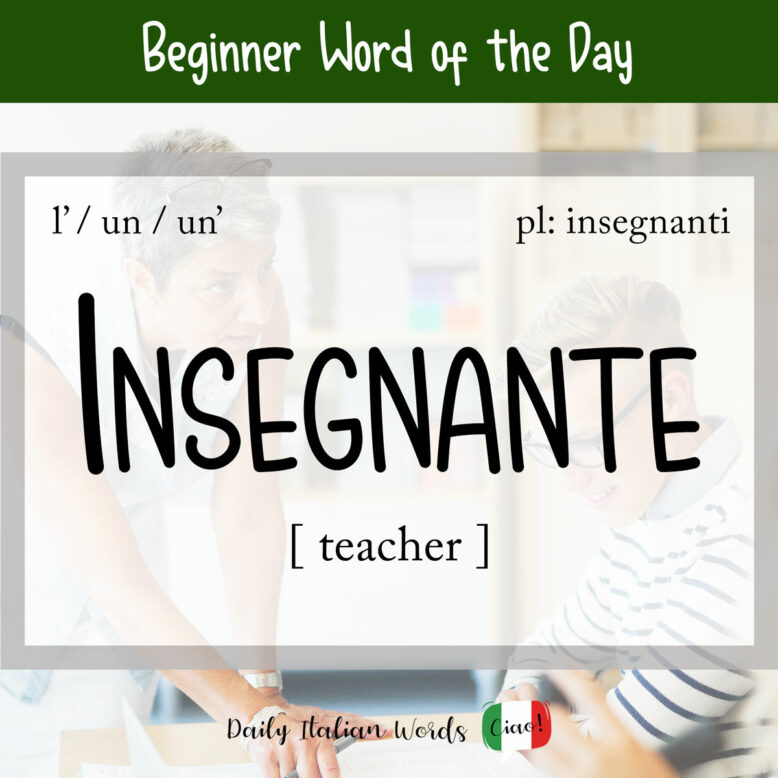The word for teacher in Italian is insegnante. Derived from the verb insegnare (to teach), it can be used to talk about both male and female teachers.

The difference between masculine and feminine can be highlighted by the indefinite article or an adjective:
- un insegnante for male teachers and un’ insegnante for female teachers
- l’insegnante è bravo or l’insegnante è brava (the teacher is good/capable)
Marco è un insegnante di arte mentre Sofia è un’insegnante di fisica.
Marco is an art teacher whereas Sofia is a physics teacher.
The plural insegnanti follows the same logic: gli insegnanti is masculine or a mix, whereas le insegnanti is feminine.

Below are some different kinds of insegnanti you might encounter in school:
- insegnante di matematica = math teacher
- insegnante di educazione fisica = physical education teacher
- insegnante di lettere = literature teacher
- insegnante di arte = art teacher
- insegnante di scienza = science teacher
- insegnante di storia = history teacher
- insegnante di musica = music teacher
- insegnante di sostegno = special needs teacher
Fare l’insegnante is how you would say to be a teacher in Italian. It is interesting to note that when talking about a person’s profession, the verb fare (to do / make) is often used instead of essere (to be).
Da grande voglio fare l’insegnante.
I want to be a teacher when I’m older.
Insegnante is the generic term for a person who teaches but there are also a number of more specific terms for different kinds of teachers such as:
- maestro / maestra: a nursery or elementary school teacher (also called insegnante elementare)
- professore / professoressa: a middle school teacher (also called insegnante medio), a college or university teacher
- docente: a college or university teacher, lecturer
- istruttore / istruttrice: an instructor (someone who teaches extracurricular subjects such as swimming, skiing, etc.)

In addition to being a noun, insegnante is also an adjective meaning teaching, though its use is mainly limited to two terms: corpo insegnante and personale insegnante, both of which translate as teaching staff.
Heather Broster is a graduate with honours in linguistics from the University of Western Ontario. She is an aspiring polyglot, proficient in English and Italian, as well as Japanese, Welsh, and French to varying degrees of fluency. Originally from Toronto, Heather has resided in various countries, notably Italy for a period of six years. Her primary focus lies in the fields of language acquisition, education, and bilingual instruction.


